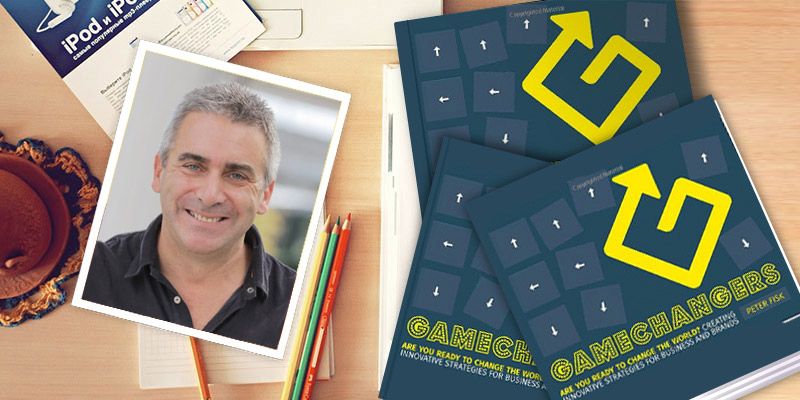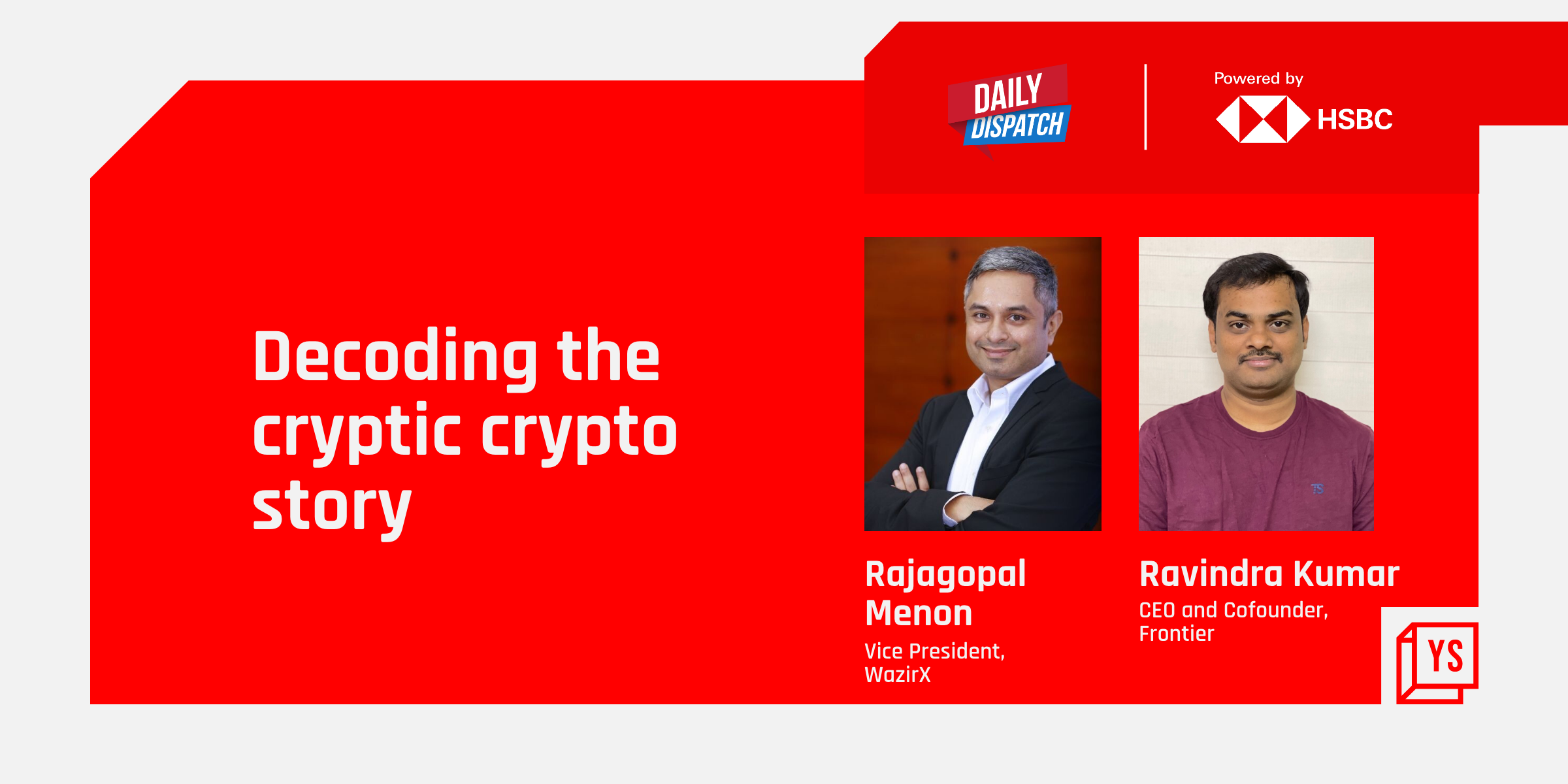'Think how you can change the game' – entrepreneur tips from innovation guru Peter Fisk
Peter Fisk is author of the bestseller, Gamechangers: Are you ready to change the world? (see my book review). He heads the company GeniusWorks, and his earlier books include Creative Genius, Customer Genius and People, Planet, Profit.

Fisk is Visiting Professor of Strategy, Innovation and Marketing at IE Business School. His clients include Microsoft, Tata, American Express, Cinnamon Hotels, Hersheys, Marks & Spencer, Visa, Vodafone, and Volkswagen. He has a degree in Physics from the University of Sussex.
In the first half of a two-part interview, Fisk joins us in an exclusive chat on innovation trends, entrepreneurial mindset, market research, and lean startups.
YS: What is your current field of research in innovation?
PF: I am focused on market innovation. Most people focus on innovating their products and services. But these are quickly copied, and give little advantage. Instead, focus on rethinking how your market works – the ‘game’ – think how you can change the game, rather than just play the same game as everyone else.
Then, innovate the business – especially the business model and customer experience – in response to this new vision of how you want your market to work to your advantage.
YS: In the time since your book was published, what are some notable new innovators you have come across?
PF: The biggest story that isn’t in the book is Uber, the taxi business that embraces a digital platform to connect drivers and passengers in a simple and addictive way. In five years, they have created $40 billion value. They’ve just launched UberEATS, already the world’s largest food home delivery network.
YS: What are the typical challenges entrepreneurs face as they scale up their innovation from a startup to a large company?
PF: Today’s entrepreneurial mindset is to start fast, make mistakes and learn, and then as you gain more insight and experience, ‘pivot’ your business to where you really see the best opportunity.
As examples, Pinterest started life as Tote, helping people explore online retailers and receive updates about prices and availability. It realised people were mainly using the site to build and share idea lists, and soon shifted course to focus on ‘pinning.’
Groupon began as a platform for social action called The Point, before reinventing itself in the crowd-based local coupon business. Ushahidi started as an African elections monitoring service, before growing into a crowdsourced news aggregator. Twitter emerged out of a mediocre podcasting concept called Odeo that was outshone by iTunes.
YS: How should innovators strike that delicate balance between ‘Stick to your vision’ and ‘Adapt to a changed world’?
PF: It’s like climbing a mountain: set out your vision on the peak you want to get to and then choose your path. However, you may well have to change your path depending on what it’s like, the weather conditions, and much more. You might sometimes even want to aim for a different peak, when you realise that the initial one is no longer appropriate.
YS: Is there such a thing as the ‘ideal age’ for an innovator, or can the creativity bug strike you at any time?
PF: Innovation has nothing to do with age. Younger people bring energy and fresh thinking, uninhibited by the past. Older people bring experience, wisdom, and personal discipline. One thing that does help is diversity – having a mixture of backgrounds and experiences. Teams always beat the lone genius!
YS: Who are some of the entrepreneurs you admire the most today?
PF:
Jack Ma: The Chinese school teacher who created Alibaba, and then keeps growing it to the next level.
Stefan Klein: The 60-year-old Slovakian entrepreneur, a former car engineer with a passion for flight, who created Aeromobil, the flying car.
Elon Musk: The American entrepreneur, who dreams big and has audacious ideas, invests in lots of different businesses, and stays true to his vision.
Tony Hseih: The American CEO of Zappos, who has taken it upon himself to rejuvenate the inner cities of America as a part time job, whilst still running Zappos.
Cristiana Arcangeli: The Brazilian entrepreneur, who most recently launched Beauty’In (food and drink with cosmetic properties), which is selling incredibly well in London and New York.
YS: How should innovators evaluate weak signals and anecdotal evidence which seem to contradict quantitative market trends?
PF: Most market research focuses on the mainstream. The questions are defined based on current knowledge, and limit the possibilities. The answers, particularly in quantitative research, are averaged and so represent nobody in particular. Newness typically occurs in the margins and not the mainstream – the deviant behaviour, the new needs and aspirations. It is better to find these qualitatively, using a small sample, using observation and discussion.
Collaborative development with these customers is the next step, learning together and shaping the right solutions. It might be, of course, that there is no longer a ‘mainstream’ as markets increasingly fragment, as people are more different. In which case, there are lots of different margins, lots of different experiments. See which ones win!
YS: How can social entrepreneurs and non-profit organisations make use of your Gamechanger framework model?
PF: In exactly the same way as other companies. Companies like Toms (the Argentina-inspired footwear company who give ‘one for one’ to good causes), Raspberry Pi (educating kids about technology), Narayana Hospitals (with a dual business model, where health tourism subsidises free healthcare locally), and many more.
The simplest way to explore ways to change the game in any market, is in the ‘gamechanger compass’ – change the who, change the why, change the what, change the how.
YS: What are the best examples you have come across of governments innovating successfully?
PF:
Estonia: e-Estonia was recently launched, giving anybody who wants to apply (from anywhere in the world) the ability to become a virtual citizen, and to establish a business in Estonia (with local government support and taxation).
Kazakhstan: The huge and barren country has one of the best broadband infrastructures, enabling it to offer digital services such as e-education, e-health as well as jumping into the digital world of retail and entertainment.
UAE: The country is pooling resources in a bid to become ‘the world’s most innovative nation by 2020’ when it will host the Dubai World Expo 2020, learning in particular from Singapore, to build a knowledge economy.
New Zealand: They are building a powerful national brand around ‘100 per cent pure’ which then inspires tourism and inward investment, but also pride and confidence in local people and local businesses.
YS: How was your book received? What were some of the unusual responses and reactions you got?
PF: It got fantastic reviews, here are just a few of the comments: “Zigging when others zag is the only way to win” (Kevin Roberts, Worldwide CEO, Saatchi and Saatchi), “It offers us a roadmap” (Greg Williams, Editor of Wired Magazine), and "Gamechangers explodes with refreshing strategies and ideas” (Paulo Miguel Pereira da Silva, CEO of Renova).
YS: What is your next book going to be about?
PF: I’m working on two concepts. I am using the ‘lean startup’ methodology, to develop the concepts quickly and test them with audiences, and then decide which one is better to turn into a book! This is important because in reality a book becomes a whole service offering – events, masterclass, consulting, toolkits, and so on. Maybe your own readers can tell me which of these two concepts they prefer!
- Superhuman Business. People can do amazing things, when their environment, support, motivation, and rewards are all in alignment. We take our insights from cultural situations - for example, the Greek age of knowledge, where the collective wisdom of many scholars was able to push each to new levels; or the Tarahumara Indians of Mexico who are able to run for 24 hours over amazing distances because that is their culture; or in the business world the impact of innovation clusters like Silicon Valley, Espoo in Finland, or Hyderabad, where technology drives ideas in an amplified way. The question is how to apply this to the world of business if you want to deliver fantastic customer service in a call centre, or if you want to drive amazing innovation in products.
- Exponential Brands. We live in a world where the world's largest accommodation business owns no property, where the world's largest retailer owns no inventory, and the world’s largest media company owns no content. Airbnb, Alibaba and Facebook play by new rules – ideas and networks. The impact can be incredible: WhatsApp has created $19 billion of value in three years, Uber $40 billion in five years. Exponential! But most of us think in linear ways. Linear thinking is not enough (imagine moving forwards one step every year: 1, 2, 3, 4, 5), whereas exponential thinking is dramatic (imagine moving forward like this: 1, 2, 4, 16, 256). So, how can your business harness the power of ideas and networks to drive exponential business models, with exponential impact?
YS: It’s one thing to fail with a product, and a bigger dimension to fail with a company. How should founders regroup in these two situations?
PF: Two out of every three products will fail. Accept it, expect it. The trick is to identify failures as early as possible, and to back the winners quickly. Failure of companies is harder. But it’s all experience. Great experience. Move on. Learn everything you can. Come back and do better.
We shouldn’t call it failure. It just didn’t work out yet.
YS: What is your parting message to the startups and aspiring entrepreneurs in our audience?
Be bold. Be brave. Be brilliant.











![[Exclusive] Vauld to seek 3-month moratorium extension as creditors panel explores bailout options](https://images.yourstory.com/cs/2/a09f22505c6411ea9c48a10bad99c62f/VauldStoryCover-01-1667408888809.jpg)